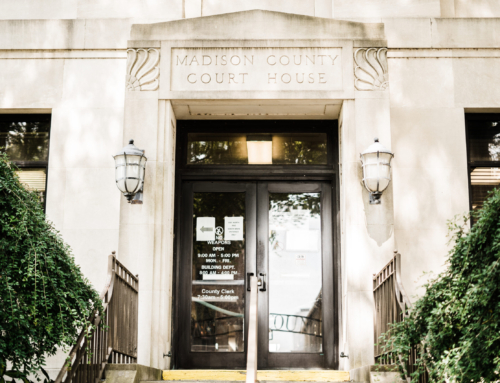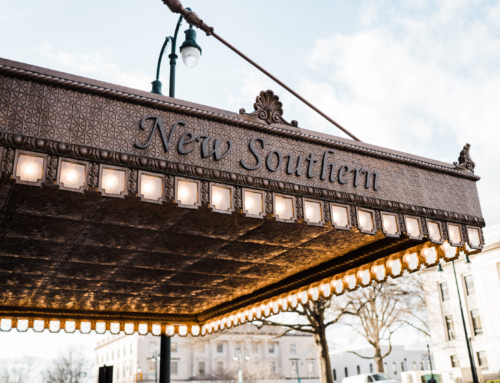Jackson Madison County Bicentennial Celebrations
The presence and significance of African Americans are intricately woven into the fabric of Jackson Madison County’s past and present history. Earliest public records of Madison County document that in 1821 when the county was founded, African American slaves were present. During this period, Madison County, Tennessee was in its infancy; however, the area was poised for new growth, expansion, and possibilities. To aid in the county’s new growth, many early African Americans shared their varied ancestral gifts that were bestowed upon them in the Motherland of Africa. These gifts would eventually become hallmarks of tradition, folkways and practices handed down to the present day.
From its early African American residents Madison County received that gift of skilled labor and industry. The “cash crop” of cotton was made king largely by their efforts in the fields. Whether by “chopping” cotton in early summer or picking it in the Fall, “King Cotton” was crowned. Complimenting this outside work were scores of African American domestics, who cleaned and cooked in stately homes, reared others’ children, yet still made time for their own families. Additionally, the skill and craftsmanship of African American builders is prominently displayed in structures still standing today. One structure of note is the Denmark Presbyterian Church located in Denmark, Tennessee. The Big Black Creek Historical Association shares that the structure, the oldest Presbyterian Church in West Tennessee, was built with slave labor that handed hewed the lumber and even fashioned the nails on site.
The gift of unquenchable thirst for knowledge is clearly evidenced by the African American saga of attaining an education under undesirable conditions. Prior to school integrations, numerous small and meager school buildings dotted the Madison County landscape. These schools issued its students passports to greater opportunities.
They were named Greer, Upper Ingram, Salem, Moore, South Jackson, Blairs Chapel, Mount Tabor, Spann-Rosenwald, Bemis-Rosenwald, among others. The Rosenwald schools were named for philanthropist Julius Rosenwald whose fund aided in their construction.
The Bemis-Rosenwald School stands today as the Walter Brewer-Bemis Community Center. The historic structure holds the distinction of being Tennessee’s oldest Rosenwald School.
For some, these opportunities may have manifested in the matriculation at Golden High School or Merry High School named for its founder, Austin Raymond Merry who was the first African American in Jackson Madison County to earn a college degree.
Lane College stands prominent as Madison County’s sole predominately African American institution of higher learning. The college, founded in 1882 embodies the dream of Bishop Isaac
Lane, a former slave. After more than a century, Lane College stands today as an intellectual beacon beckoning all who thirst to its Christian, academic and cultural oasis.
The social gift of community has enriched Madison County from its early days until the present. The African American community or village provided opportunities nurturing and passing down tradition. These communities although designed by the codified systems of segregation flourished in spite of racial strife and social upheaval. Songs and music from the community told of both happy and sad experiences. Whether it was “Big Maybelle” belting out “Candy” or Sonny Boy Williamson making his harmonica “talk”, their gift of song and music was prominent.
At times, the community provided young people with guidance, support, and the stern hand of correction. A roll call of these Madison County communities included: Mound City, South Town, Marshall, Fites Bottom, Neely Station, Onion Fields, Tri-Community and Blairs Chapel, among others.
African Americans of Madison County also brought with them the gift of an unbreakable spirit. This spirit helped to shape the county’s history through their acts of courage and gallantry. A historical marker on the Madison County Courthouse lawn recognizes the heroic efforts of the 61st U.S. Colored Infantry. The group was comprised of former slaves who left plantations and joined the Union Army to fight in the Civil War. The next century ushered in the Civil Rights Era. The period brought forth local African Americans who joined forces to boldly challenge injustices and demand change. Their efforts at times were met with hostility, ostracism, loss of livelihood and danger. History records that their efforts eventually prevailed as a plaque in Jackson City Hall heralds the champions of change” namely Genevieve Brooks, James Buchanan and Rev. W.K. Seals.
Lest we forget a long standing and vital part of Madison County’s African American community is its’ churches or houses of faith. As numerous as the small community schools aforementioned, these historic sites provided fervor and sustenance to the members’ spirits and souls. Madison County holds the district honor of being the birthplace of the Christian Methodist Episcopal Church (CME). Mother Liberty CME Church’s historical marker reveals that on December 15, 1870, in Jackson, the Colored Methodist Episcopal Church was organized by the General Conference South. The historical marker further reveals that in 1954 the Colored Methodist Episcopal Church became the Christian Methodist Episcopal Church. The CME Church joins a host of other denominations offering a multitude of worship experiences for all Madison County residents who avail themselves to participate.
The African American worship experience is vividly described in excerpts of Margaret Walker’s poem “We Have Been Believers”. Walker expounds “Our song has filled the twilight and our hope heralded dawn…..in our hunger we beheld the welcome table and in our nakedness the glory of the long white robe. We have been believers in the New Jerusalem.” Amen!
EPILOGUE
The motto of my alma mater Merry High School Class of 1957 states: “The Past is Forever Gone, But Future is still our own”. History is constantly being made and we are the players on the stage of life. It is our hope that in the next centuries we will share our losses and celebrate our victories together, for we will all be better because of it.
Dr. Glenn M. Vaulx
Bicentennial Committee Member 2021-2022
Sources:
Lane College Archives
Jackson Madison County Library – Tennessee Room
Historical Markers: Madison County Courthouse, Mother Liberty CME Church, Merry High School, Bemis Brewer Center and Jackson City Hall
Big Black Creek Historical Association
“We have Been Believers” – Margaret Walke






